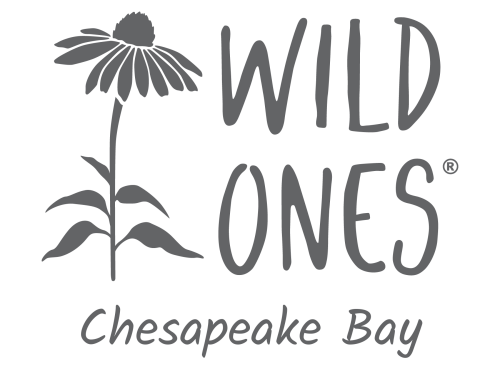Since January, members of Wild Ones Chesapeake Bay have been busy propagating native plants at the USGS Bee Lab in Laurel, Maryland, under the guidance of Sam Droege and Sydney Shumar. We didn’t know what to expect when we signed up for this amazing opportunity, and it has proven to be a great experience that has connected us with many like-minded native plant advocates.
It all started on a cold day in January when Marlene and Bill, President and Vice President of Wild Ones Chesapeake Bay, attended a winter sowing workshop at the Bee Lab hosted by Janet Hostetler, Prince Georges County Master Gardener and owner of Bloom Wild. It was a make-and-take workshop where Janet provided seeds, containers, soil, and everything else needed to winter sow natives.
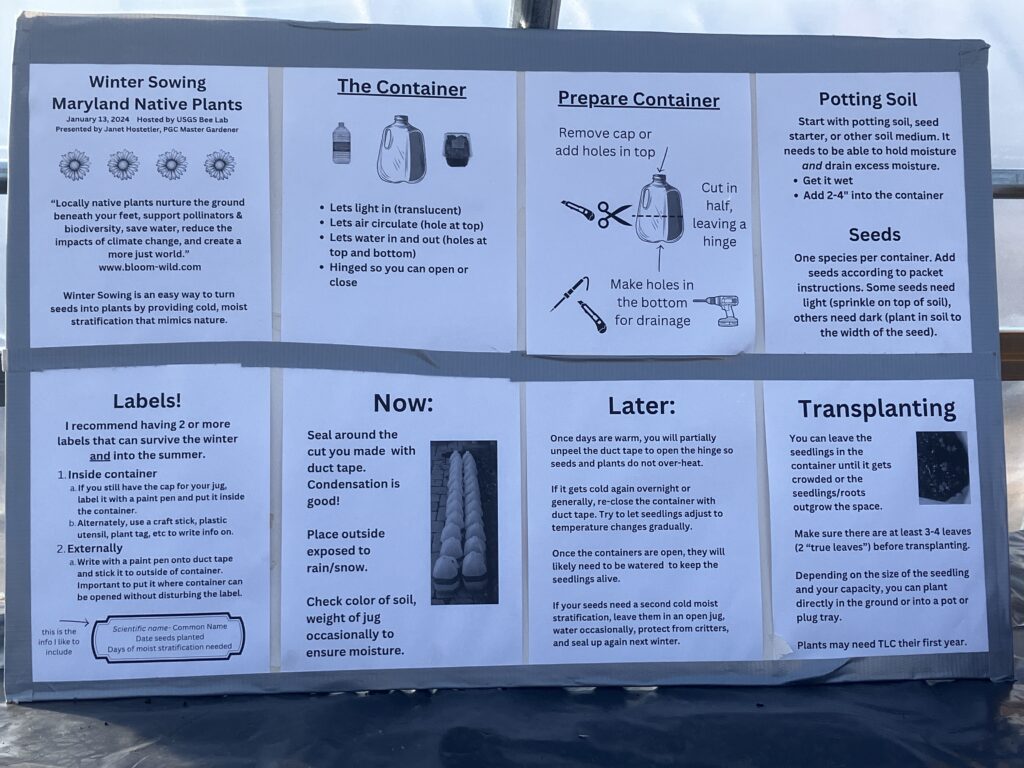
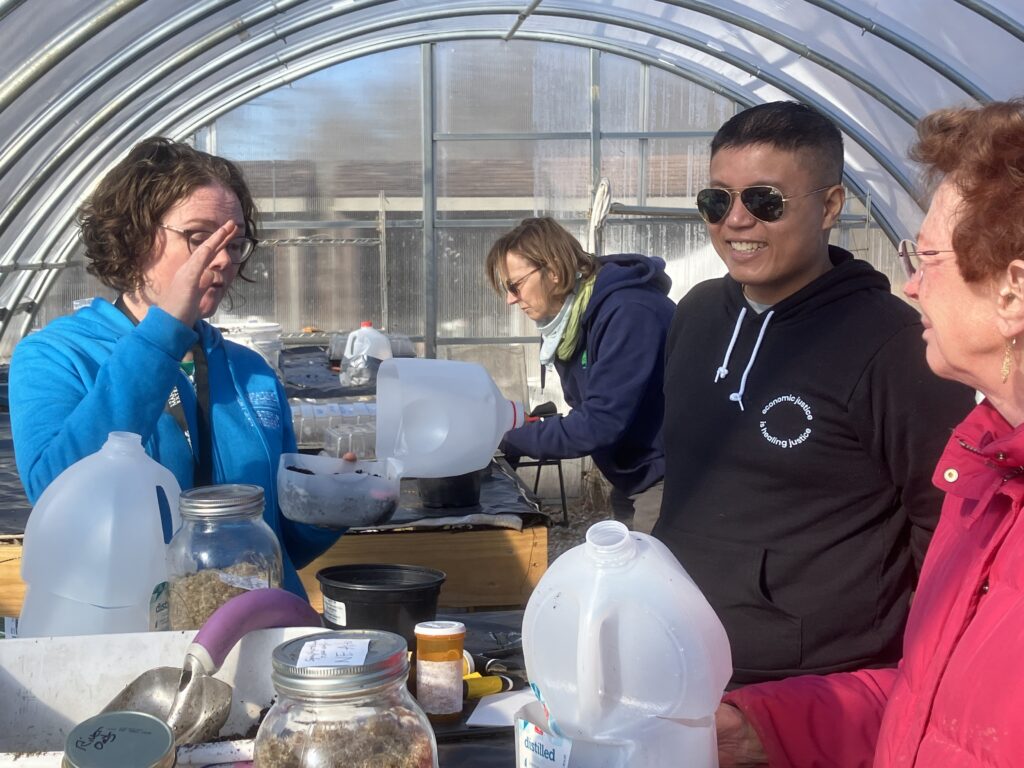
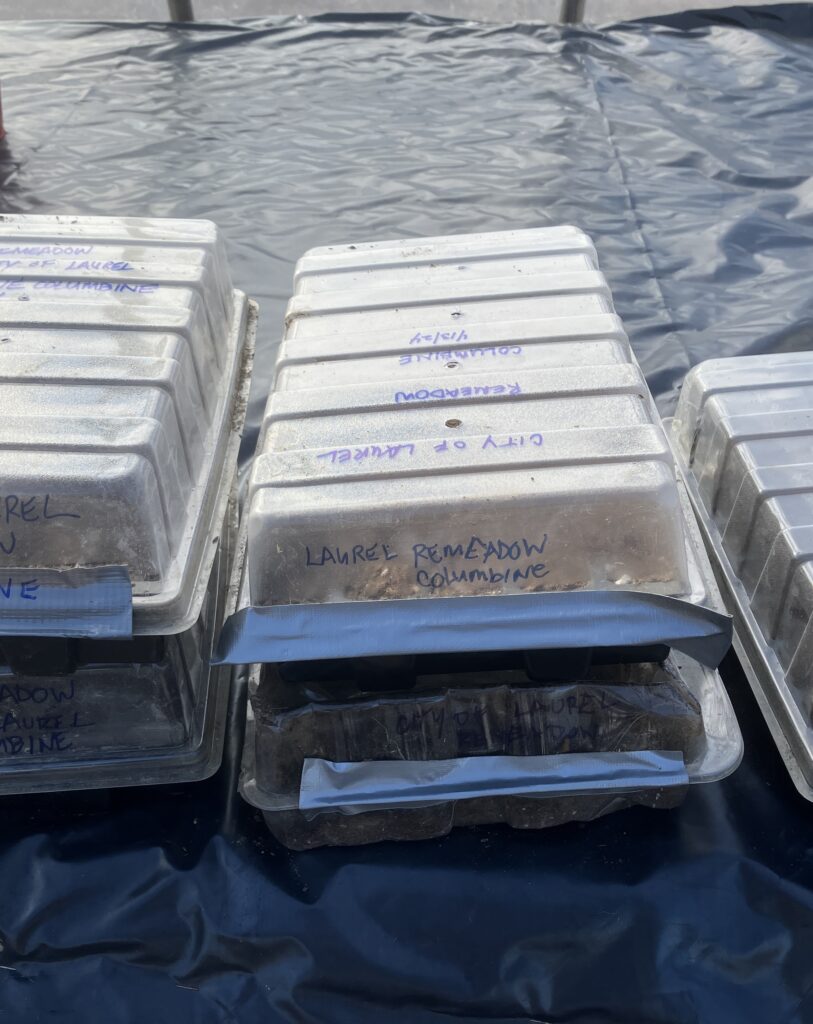
While there, we noticed several containers on the hoop house tables with various community group names, which sparked our interest. In talking with others at the event, we were intrigued to learn that the tables in the hoop house are offered up to community groups to grow native plants from seeds. So we reserved a table and signed up for the volunteer email list to get notices about upcoming volunteer days to stratify, sow, and grow native plants from seeds.
Fast forward to January 17, the first email arrives for volunteers to come and cold stratify seeds needing 60 days of cold moist stratification (CMS). Or in Sam’s words, “Tomorrow the bee lab and you will participate in the pagan stratification ritual. So, bring in any seeds you want to stratify or don’t and you can help us stratify our seeds (which indirectly become your plants as we usually over grow out plants). This will be fun and a good chance to chat with people while doing low stress, good for the world, work.”
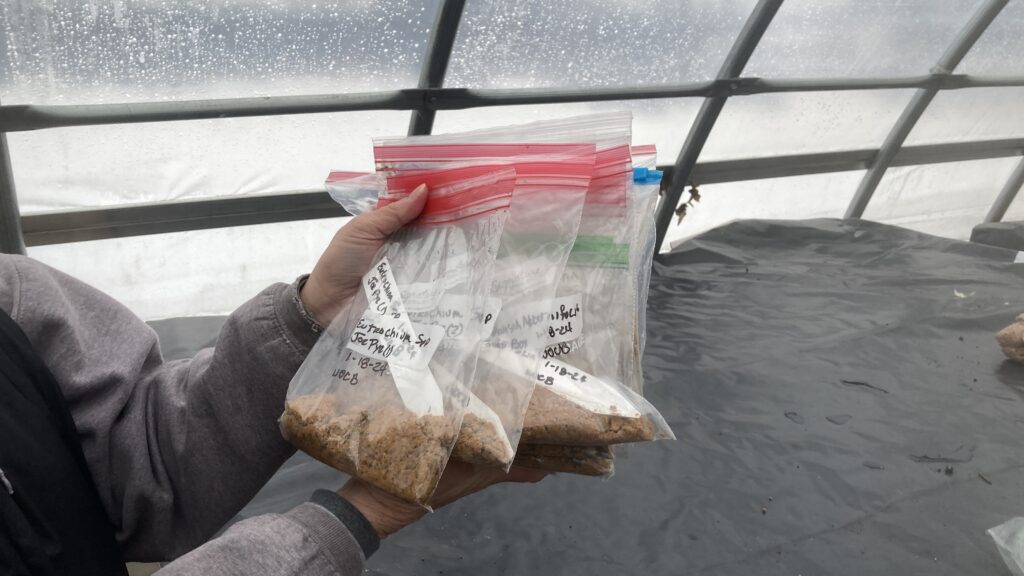
We arrived and, along with numerous others, received instructions from Sydney on how to mix the seeds with moist sand in ziploc bags. The bags were labelled with a plant marker inside and writing on the outside of the bag, then placed in the care of Sydney to spend their required days in a Bee Lab cooler.
While stratifying seeds, we met several native seed enthusiasts, including Miranda, who would become a regular volunteer throughout the process and a member of our chapter. Miranda was drawn to our spreadsheet of native seeds categorized by CMS requirements, along with our willingness to share seeds with her.
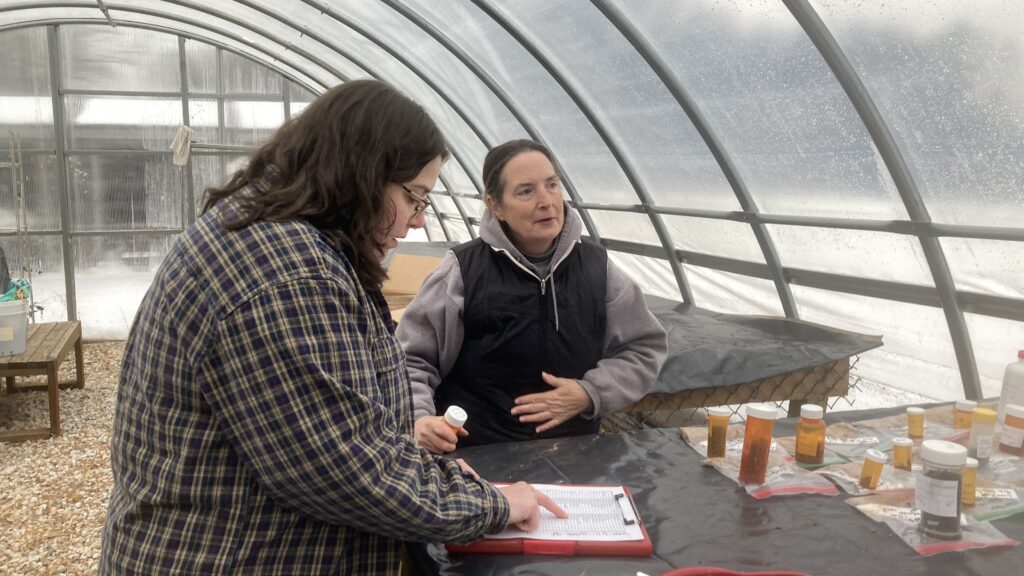
Next up, stratification of seeds needing 30 days of CMS and an email from Sam: “The countdown to planting is starting. We will be putting together 30-day plant stratifications tomorrow (Thursday, 2/15) from 3-5 p.m. These include material from our group and those from various of our partners who are working here to grow plants. Come out, it will be fun and we will be working in the lovely warm hoop houses.”
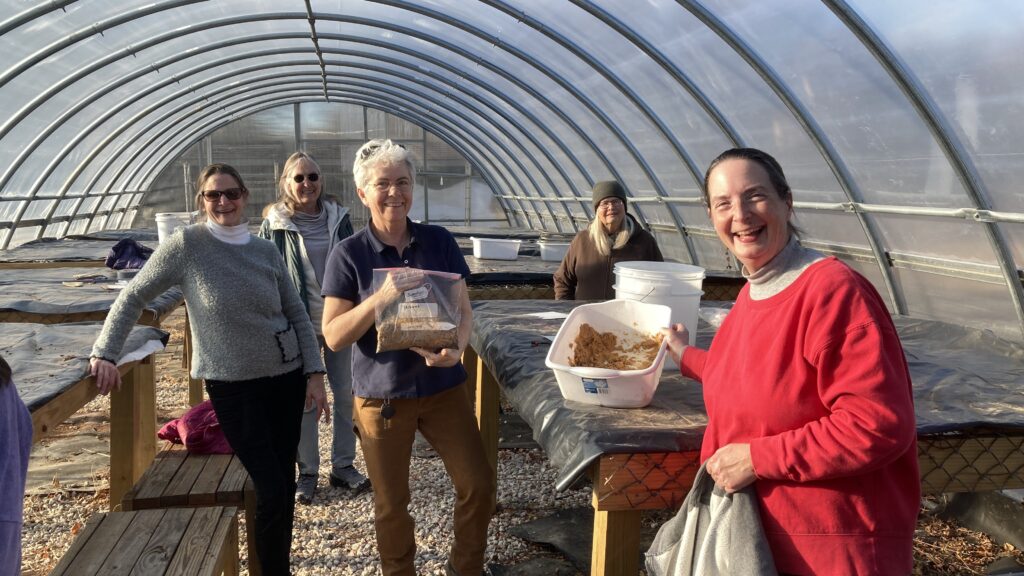
A month passes before we return again on Thursday, March 13. Our task this time – preparing seed flats and tending to the hoophouse and getting the tables ready. Sydney worked with groups that wanted to grow plants in the hoop house to choose your tables.
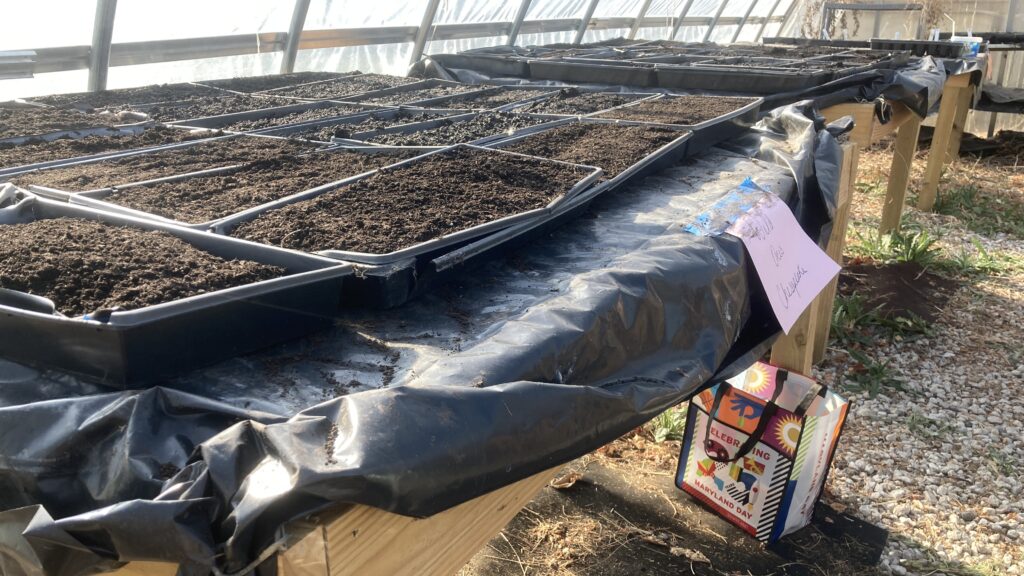
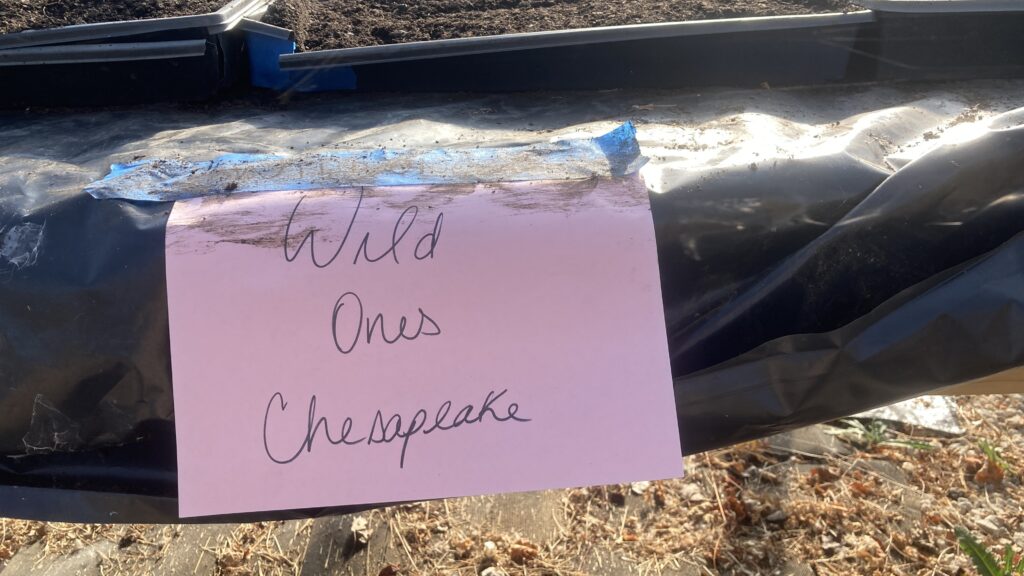
The day we were all waiting for, sowing our stratified seeds in flats, finally arrived. Instructions from Sam for Saturday, March 23, were as follows: “Saturday is the BIG planting day. We will have 2 snug, snug hoop houses and outdoor tents to work in since it will be raining most likely. The goal is to seed all the flats and do it in an organized and orderly way, neither sowing tooooo many seeds nor too little.”
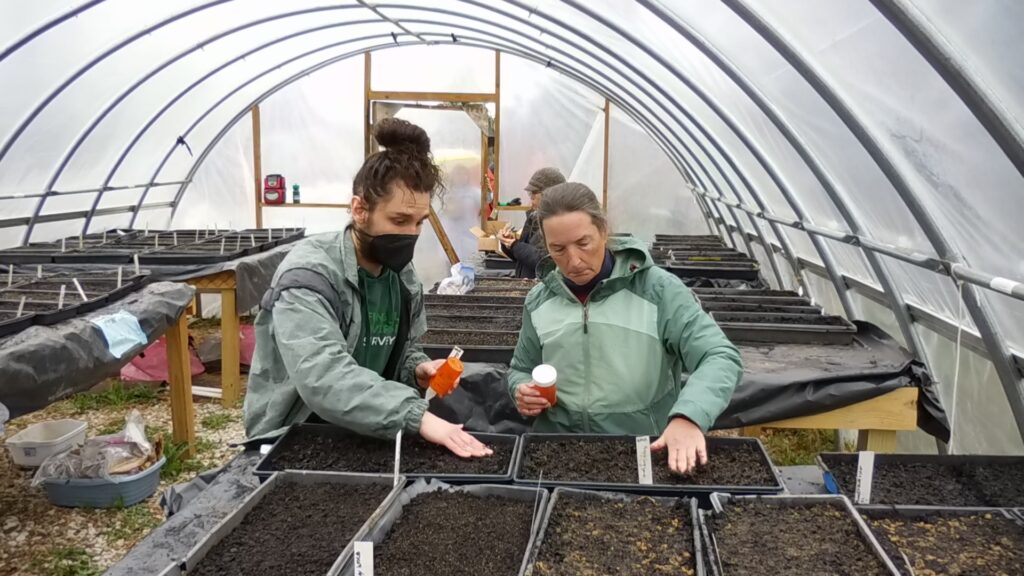
First, Sydney gave us a brief demo before we gathered our flats and seeds and meticulously sowed each flat. We were joined by Miranda and Isaiah, another of our wonderful chapter volunteers, who was happy to share his experience. We sowed a total of 49 species and left knowing that the freshly sown flats were in good hands and would be nurtured and watered daily be Sam and Sydney.
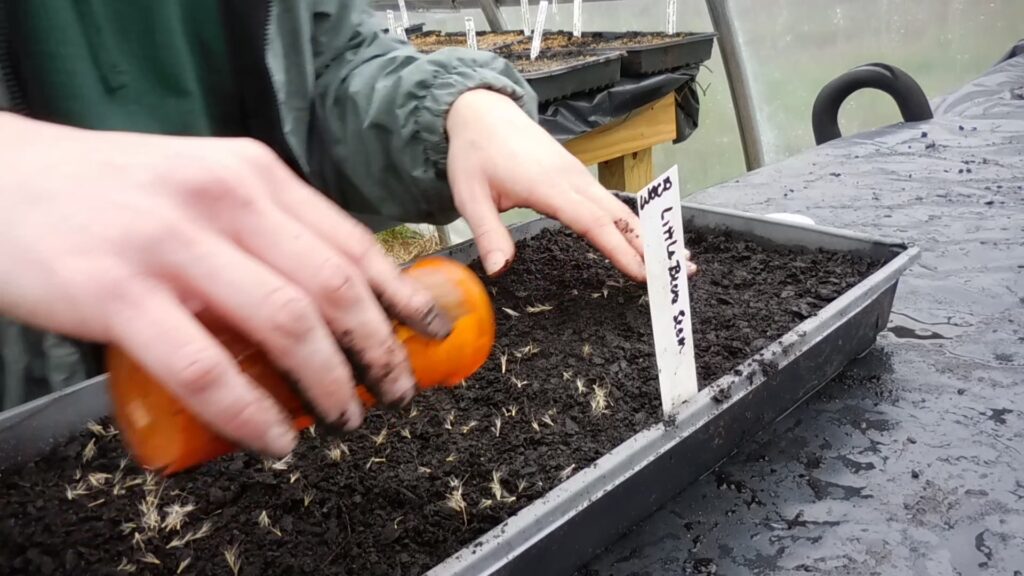
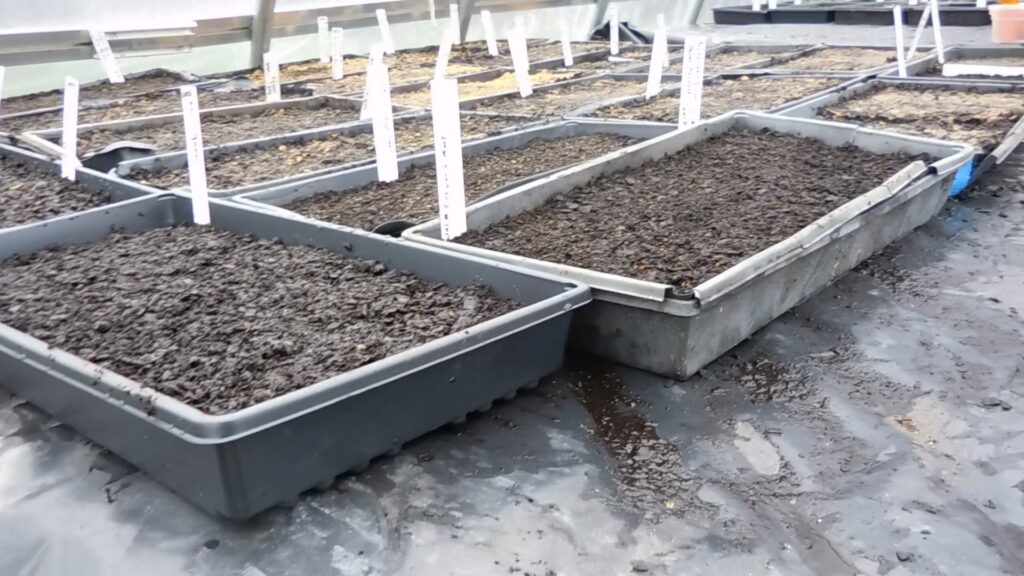
The next milestone was the day transplanting of seedlings began on April 18. In his email, Sam advised, “The season for Transplanting has begun. Seedlings are up and several flats are already ready for some transplanting action. So, come on out and we will teach you how to transplant into pots and plug trays! Community groups. Your plants are also up and thriving waiting for you to transplant.” When we arrived, we were so excited to see the lovely seedlings that would keep us busy for several months. We travelled to the Bee Lab on either Thursday afternoon or Saturday morning almost every week from April to October to transplant seedlings into plug trays or 4-inch pots, with help from Miranda and Isaiah.
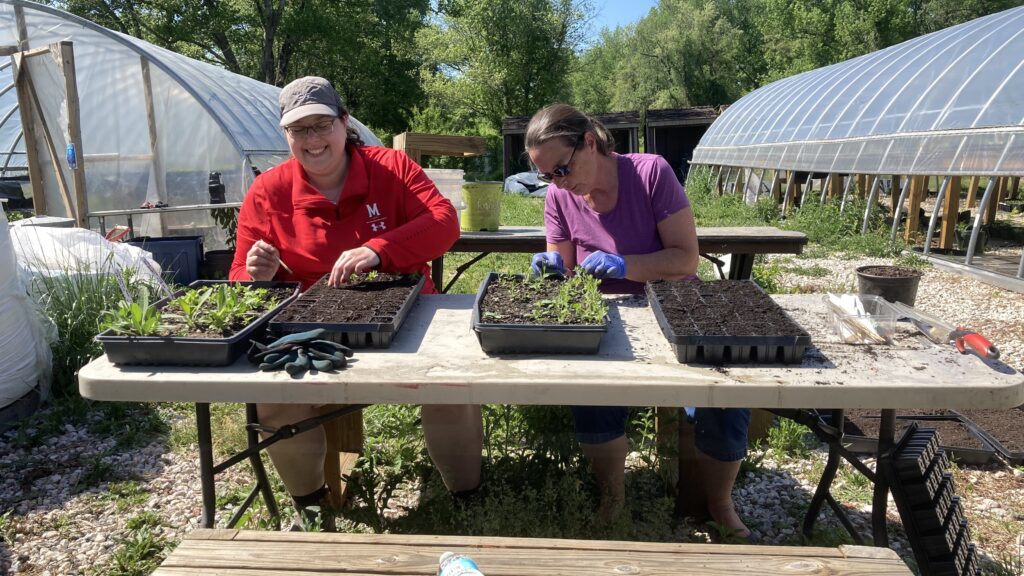
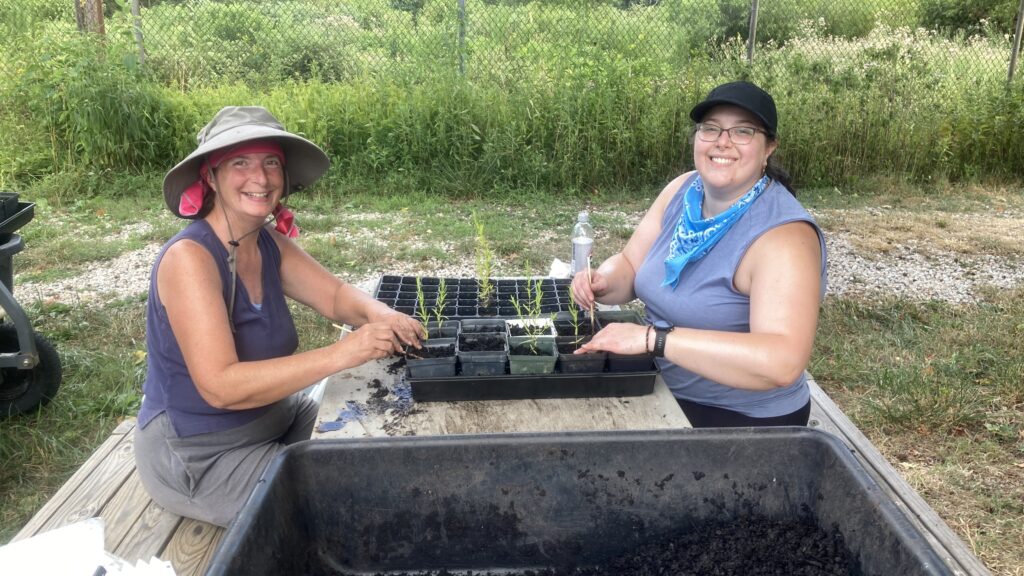
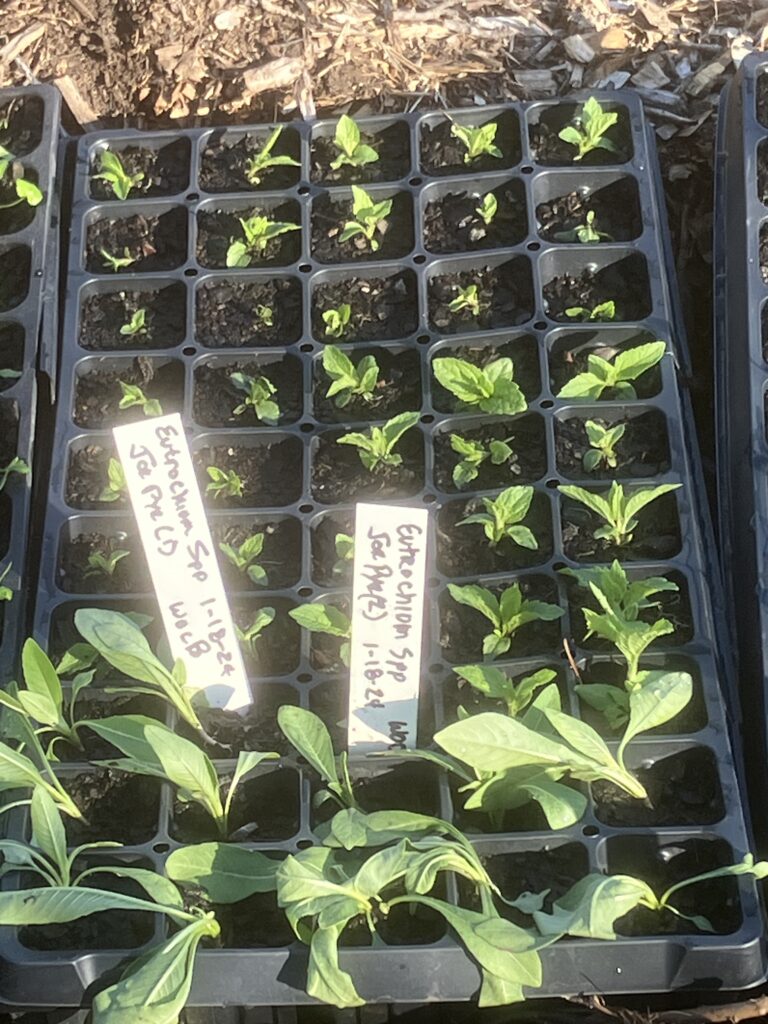
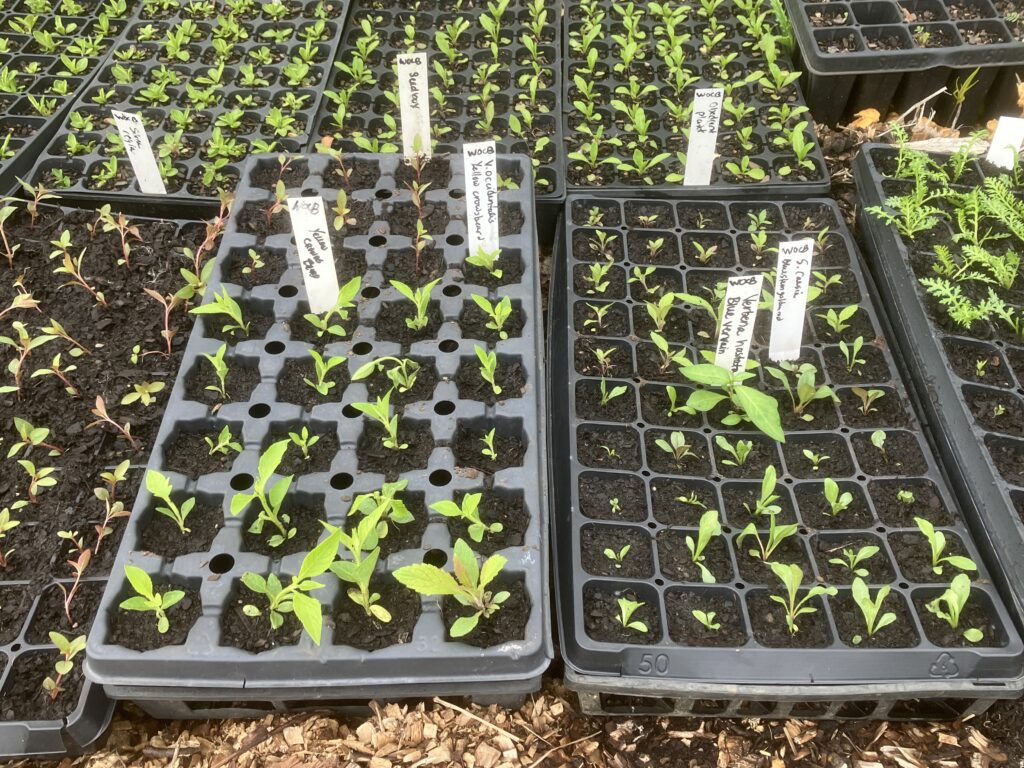
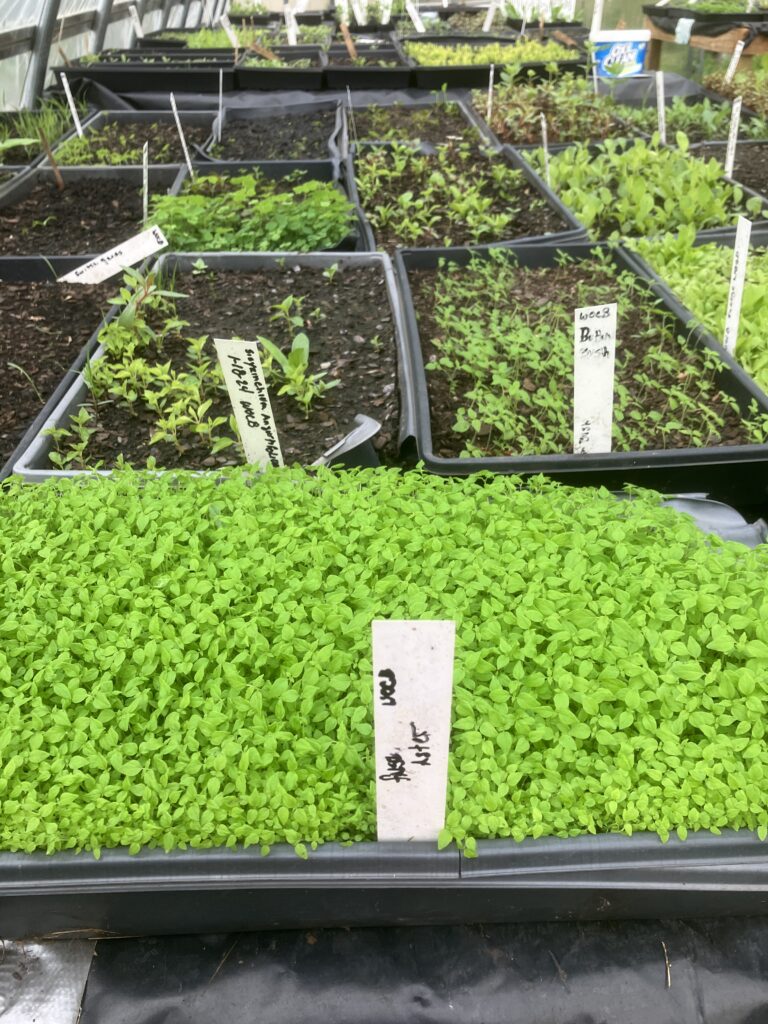
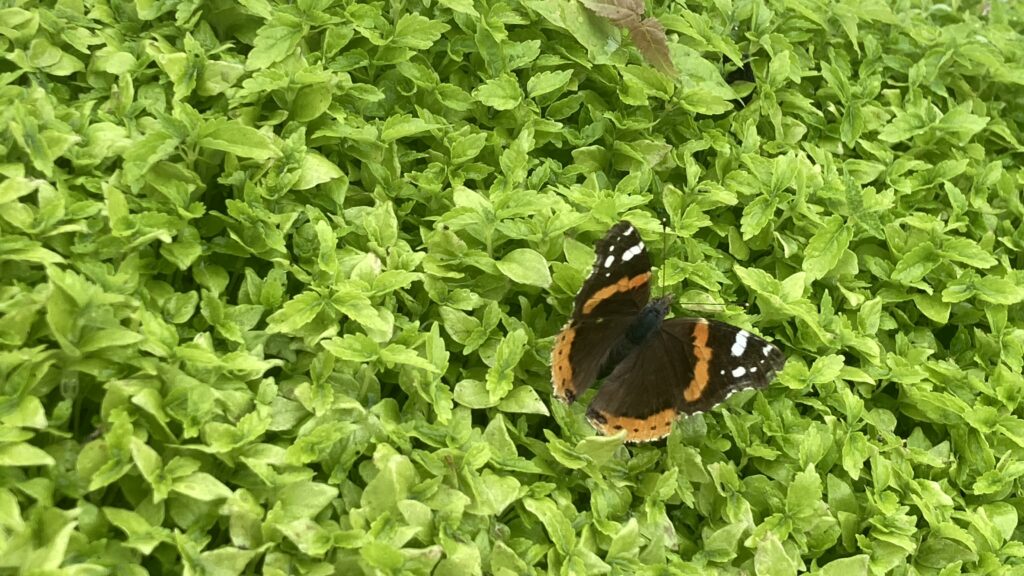
After transplanting into pots, the pots were placed in the former whooping crane pens that have been repurposed as grow yards for the native plants, complete with automatic irrigation twice a day. We started out sharing Pen 3 with a few other community groups, but we quickly outgrew the space. Elmer and his crew from the Bowie Green Team welcomed us to share Pen 4 with them, so we became pen pals. Elmer has since joined our chapter, and we are grateful for the wealth of knowledge that he brings to our chapter. Read Elmer’s Essential Pollinator Habitat Garden Instructions here.
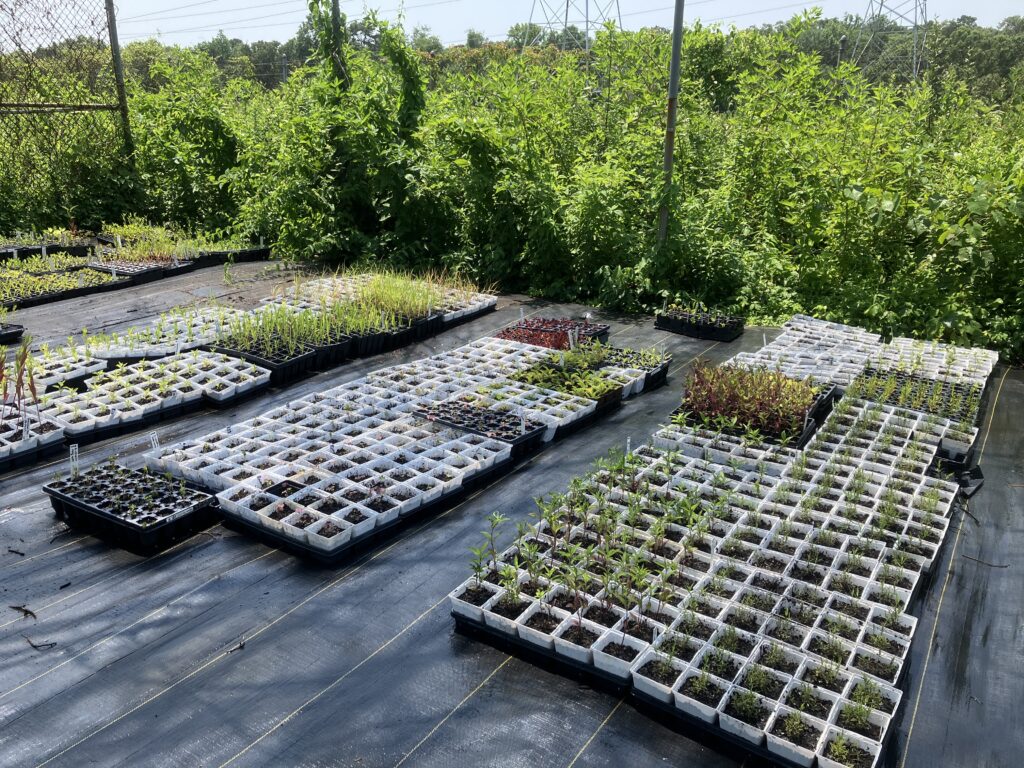
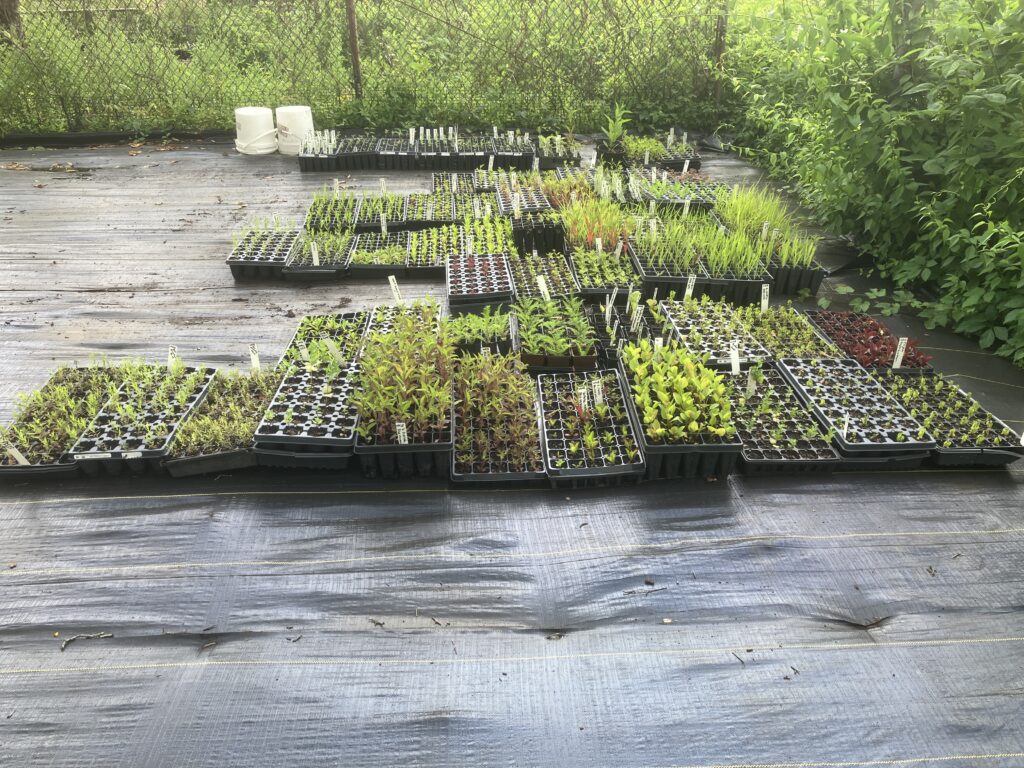
But seed germination wasn’t all the fun in store at the Bee Lab. Once seed collecting season arrived, Marlene and Miranda followed Sam around the native gardens to collect seeds for our upcoming workshops and swaps, and for propagation in 2025.
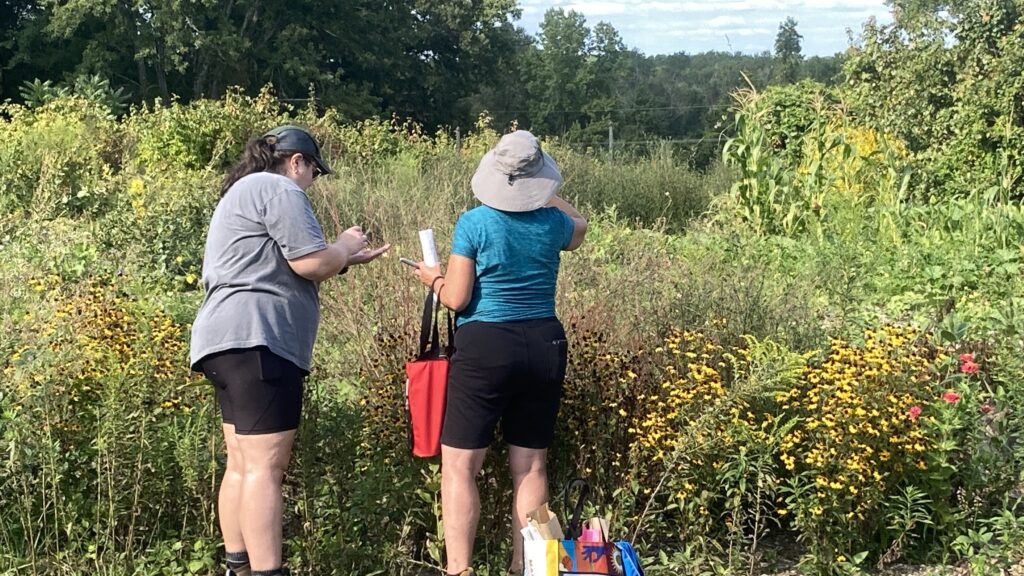
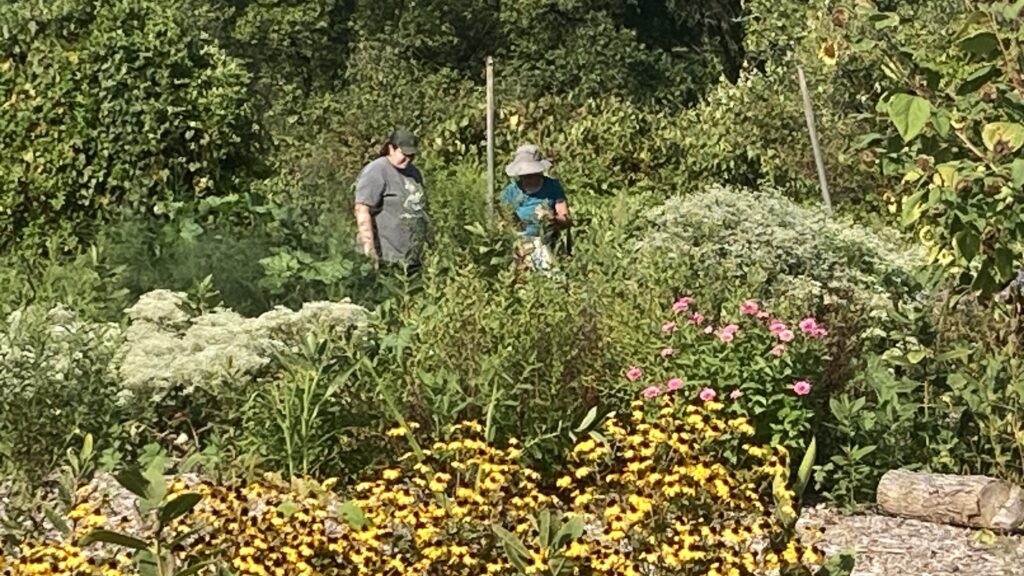
For our first year, we were quite pleased and amazed that we germinated and grew more than 2200 native plants of 35 species. Our next challenge…. What were we going to do with so many plants? First, we distributed several flats at our fall plant swap at the Mayaone community in Piscataway Park. Next, we distributed plants at our fall native tree giveaway alongside Nurture Natives at the College of Southern Maryland La Plata campus.. We surprised guests at our inaugural seed cleaning workshop with free plants and distributed more plants at the inaugural Baltimore and Annapolis Make a Difference Day, led by Miranda. We also donated plants to several native gardens we support.
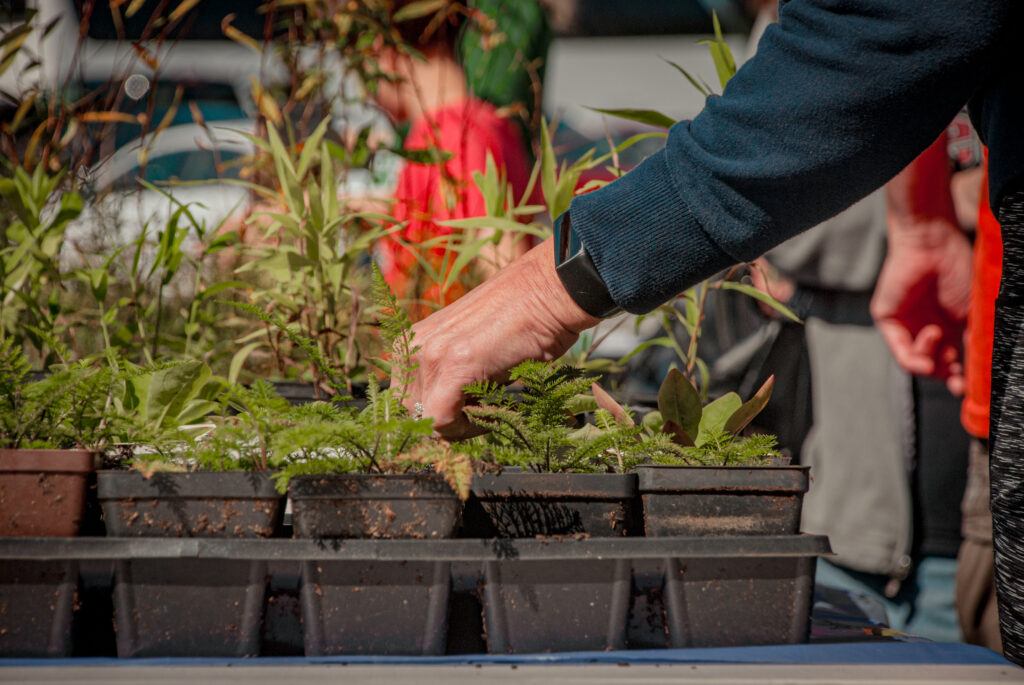
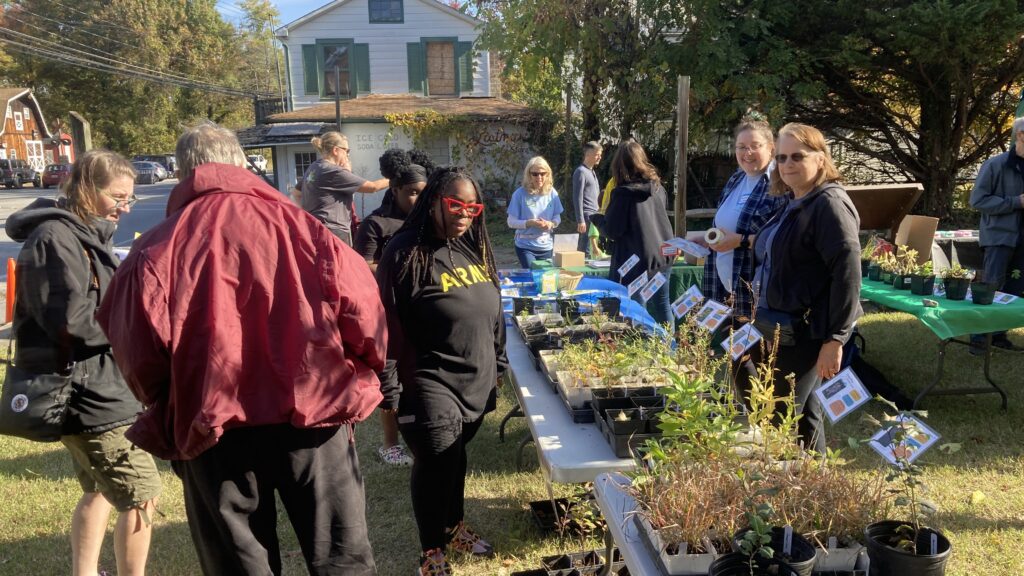
But there were still hundreds of our plants looking for new homes. So to end the season, we partnered with the Anne Arundel County Watershed Stewards Academy and Anne Arundel County Master Gardeners for the 2024 RePollinate Anne Arundel program, led by Anne Arundel County Master Gardener Lauren Toomey. Lauren is a real go-getter and was honored as the University of Maryland Extension Master Gardener of the Season – Fall 2024. Lauren was nominated by her coordinator, Maxine Yoon, because she has put in so much time and effort for the RePollinate project and has produced thousands of plants for many projects and restoration efforts.

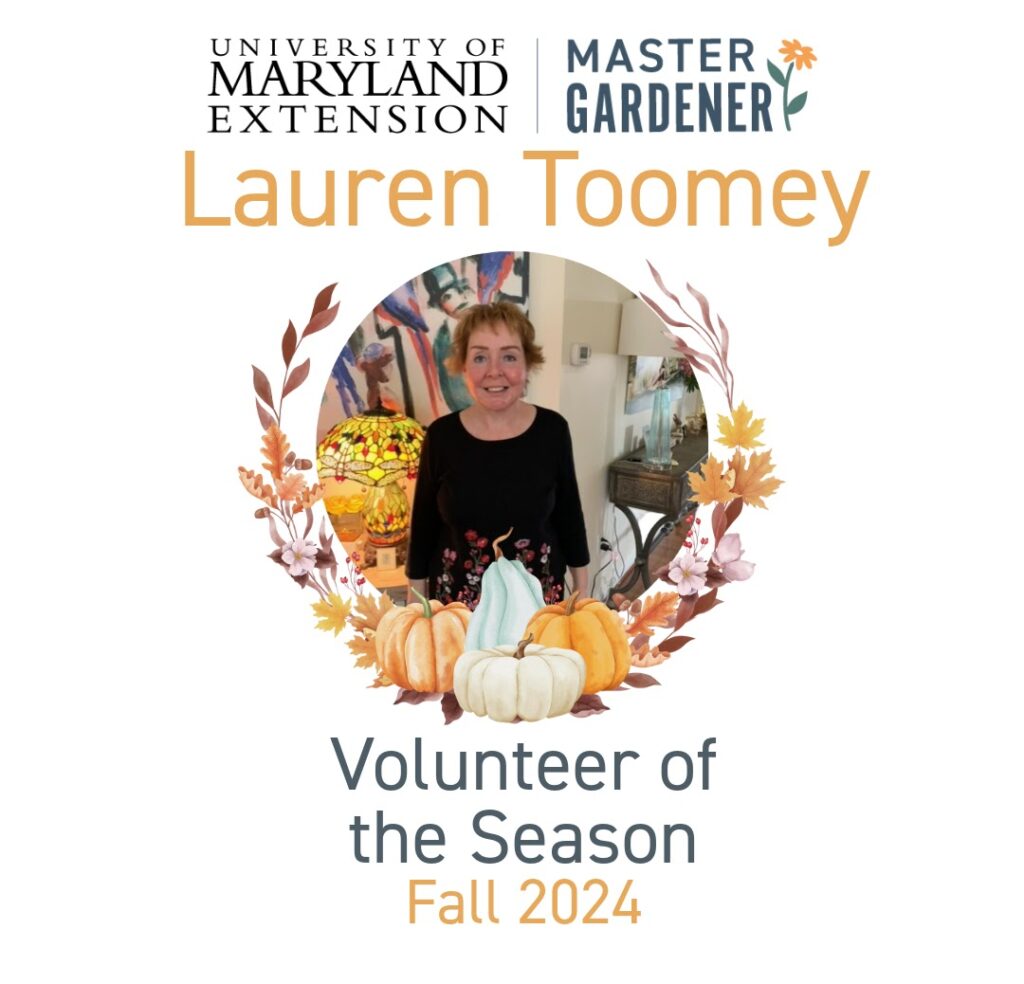
Cross-pollinating for several weeks, Wild Ones Chesapeake Bay members Marlene, Bill, Sue, Miranda, and our mascot, Misty, assisted RePollinate guests in selecting naive plants for their site conditions and with loading their cars. We also promoted the distribution on our social media.
Through our partnership, over four thousand native plants were given away in exchange for donations to purchase materials and supplies for next year’s propagation. Distributions began on Halloween when we were visited by Stacy Small-Lorenz, University of Maryland Extension Faculty Specialist for Residential Landscape Ecology, and Maxine Yoon, Anne Arundel County Master Gardener Coordinator. Stacey selected dozens of native plants grown at the Bee Lab to take home for her gardens. Read Stacey’s blogs here.
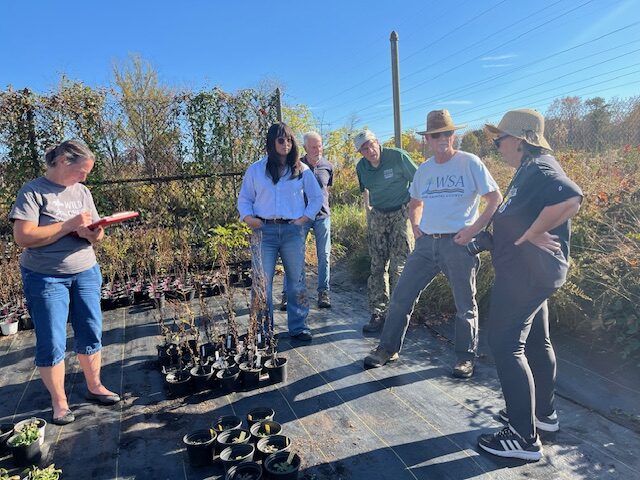
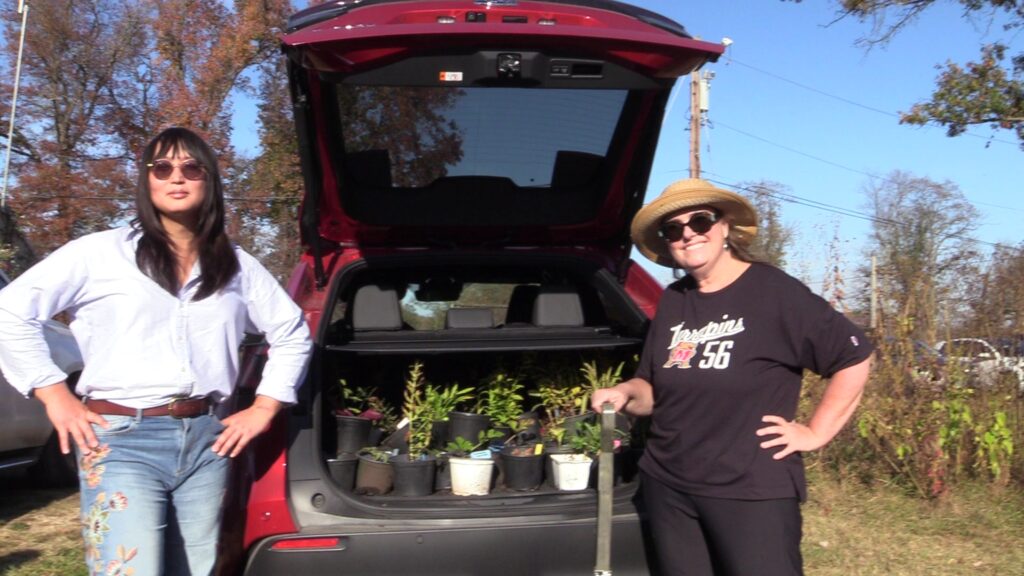
With our inaugural year of propagating native plants from seeds behind us, we have lots of lessons learned to review and are already preparing for the 2025 growing season. We hope to focus our attention on native plants that are little known, hard to find, and/or under-appreciated in the nursery trade, with a primary focus on native plants to our local Chesapeake Rolling Coastal Plain ecoregion that have recognized faunal associations. In addition, we will also include a few other plants with high pollinator value.
Wild Ones Chesapeake Bay is wildly appreciative of the opportunities at the Bee Lab to connect with like-minded native plant enthusiasts in carrying out the Wild Ones vision of native plants in every community.
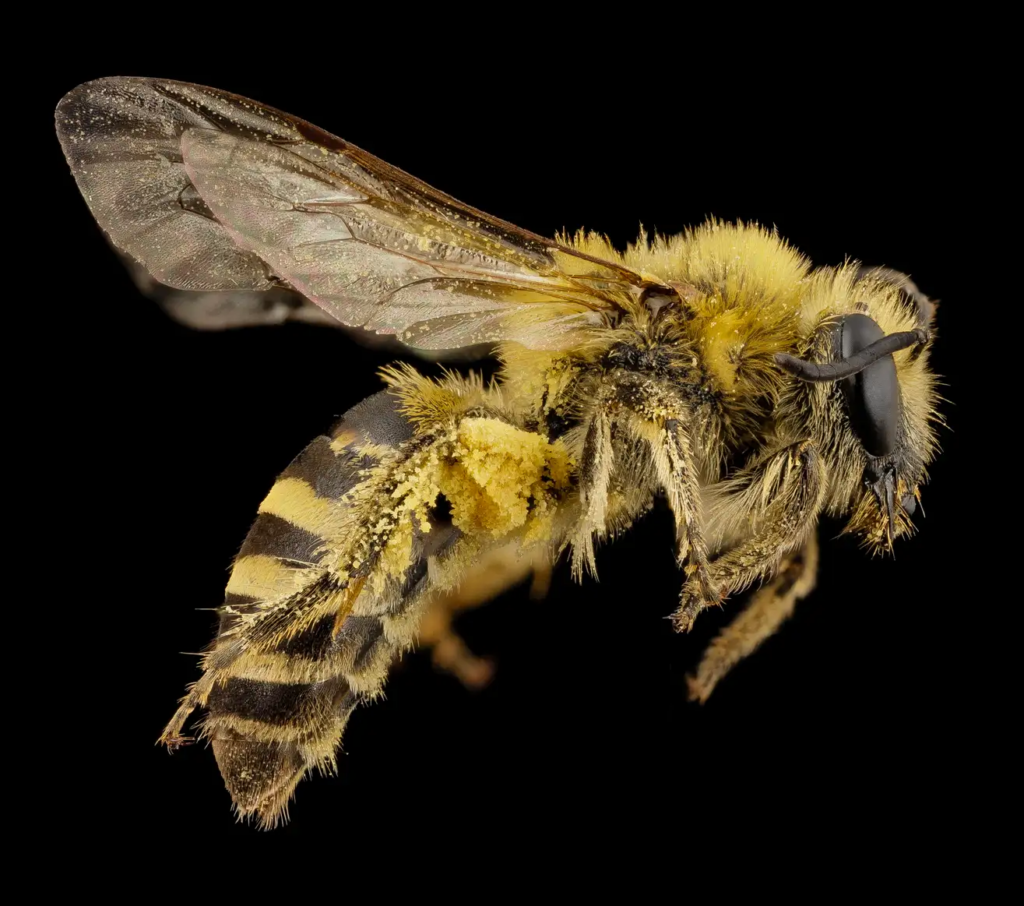
To learn more about Sam Droege and the USGS Bee Lab, check out this recent article, Behind the Scenes at the Federal Bee Lab Powered by Native Plants. And to view his amazingly bee-autiful photos, check out the USGS Bee Inventory and Monitoring Lab on Flickr. If you haven’t seen Sam’s Ted Talk, you can watch it here.
Image of Colletes hederae by Sam Droege
